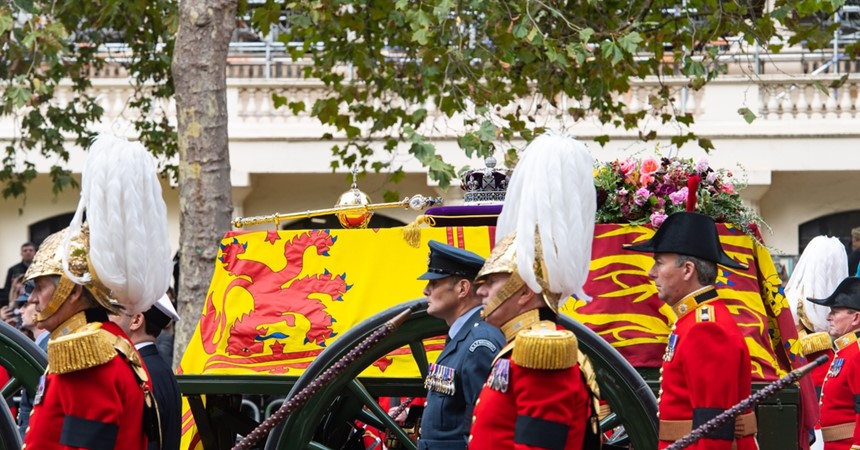One of the things that struck me repeatedly as I watched the various ceremonial events around the funeral preparations for the Late Queen Elizabeth was the presence of silence in places where you would typically not expect to find it.
The City of Edinburgh is, I am reliably informed, usually teeming with the hustle and bustle, with noise from this and that, and yet, during the procession of the Queen’s coffin from Holyrood House to St Giles’ Cathedral, there was a profound silence across the parade route and the City in general.
The formal procession of the Queen’s coffin from Buckingham Palace to Westminster Hall was accompanied by military bands playing the usual and expected funereal marches. Yet, that music pierced a level of silence pervasive not just across the parade route but the broader City of London—a place that is not precisely known for lack of noise.
Even the various events within Westminster Hall took place within a general aura of silence, broken occasionally by both sung and silent prayer and the sound of footwear on the flagstones. No unnecessary sound was heard; silence was the general background, making the sounds more powerful.
Similarly, the funeral service itself in Westminster Abbey had profound moments of silence where words were unnecessary, and silence reigned supreme. The national moment of silence crept out of the Abbey into the surrounding parklands and streets and, again, was palpable - and, therefore, much more significant.
Silence, of course, is not simply the absence of sound. Silence is a deliberate choice, something we consciously choose to do or practice. It has a long history in the tradition and practice of the Church, as can be seen in some of the monastic orders in which silence is the norm of daily life (see, for example, Chapter 6 of The Rule of St Benedict).
Silence is an almost counter-cultural reality in a world where noise is pervasive, and any absence of sound must be an opportunity for something to be said or done. For some people, silence is frightening, something to be avoided at all costs, lest it demands something of them. But, on the other hand, we can quickly rush to fill any silence with words, even if they are not strictly necessary to be spoken, all because silence has become something alien to our existence.
And yet, it’s not.
At least, it shouldn’t be.
More appropriately, it shouldn’t be for Christians who seek to listen to what God is saying to them.
As it is valid for all human communication, it is impossible to hear what God is attempting to say to us when we do all the talking. Therefore, like all human communication, sometimes it is vitally important for us to remain silent so that we can listen and hear what God is attempting to say to us.
And the difference between listening and hearing is for a discussion at another time!
Speaking for myself, some of the most profound prayer experiences I have had during my life have been when I sat in silence and waited upon the Lord. Of course, it is not always easy to organize such times, particularly given the almost frantic pace of contemporary life, but they have been beautiful times when they have taken place.
The place of silence in our Christian lives, with the accompanying assumption of a chosen preparedness to step out of the day-to-day rush, is not always something to which I (and I suspect others) give much thought.
And yet…what am I at risk of losing when I attempt to avoid silence, or do not allow for the possibility of silence in my life?
Acknowledgements
Image by Michael Tubi via Shutterstock

